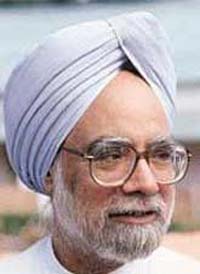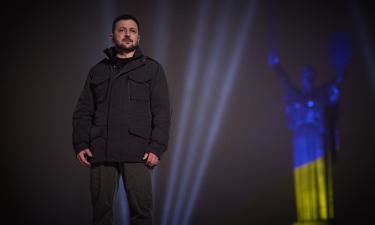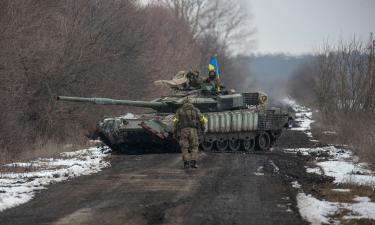Indian prime minister ends Kashmir talks, hopeful despite separatist boycott

Prime Minister Manmohan Singh said his country was "committed" to living in harmony with neighboring rival Pakistan and to resolving the issue of Kashmir with a lasting peace treaty. He also said the number of troops in the state - estimated at more than half a million - could be reduced if violence abated, and promised to hold talks with rebels if they ended terror attacks.
But suspected militants delivered a grim reminder of his challenges barely an hour after he flew out of the region, killing a man, a woman and a child in an explosion that blew up a bus carrying Indian tourists. The explosive was apparently planted by militants inside the bus, said Senior Superintendent of Police Munir Khan. Seven people were injured. Khan had earlier said two women were killed.
Kashmiri separatist groups, which seek the region's merger into Pakistan or the creation of a separate nation, boycotted the talks, saying they will not sit at a negotiating table with pro-India groups but were willing to meet him separately. Singh, who met them in New Delhi in February, declined to do so this time.
Singh proposed several measures to encourage contacts and interaction among Kashmiris divided by the India-Pakistan border, including evolving simpler travel procedures and finding new travel routes. Progress on the measures would be taken up in future rounds of talks, he said.
He also said what few Indian officials like to say publicly - that human rights abuses by security forces are taking place.
He said the government had told the security forces that "there should be zero tolerance for human rights violations."
Militant Islamic groups had threatened to sabotage the two-day talks, which began Wednesday, and called a general strike that shut shops, businesses and schools for a second day Thursday.
The largest Kashmiri rebel group, Hezb-ul-Mujahedeen, said there could be no peace without the participation of rebels in the talks.
Singh responded: "Anybody who shuns violence and gives up the path of terror ... We are willing to find ways and means to interact with all such groups."
The boycott by the separatist All Parties Hurriyat Conference ruined the government's hopes of bringing pro-India Kashmiris and separatist political leaders to the same negotiating table to discuss ways to achieve peace in Indian-controlled Kashmir.
"I am not an astrologer, but I have not lost hope that ultimately good sense will prevail that all those who are in favor of a peaceful resolution of the problems facing this state will work together," Singh said.
Dozens of separatist groups are fighting for the independence of the Indian-held portion of Kashmir, or its merger with mostly Muslim Pakistan. Both India and Pakistan claim all of Kashmir, the AP reports.
Subscribe to Pravda.Ru Telegram channel, Facebook, RSS!




